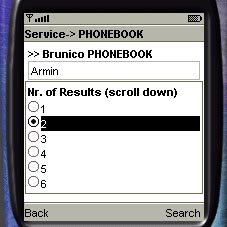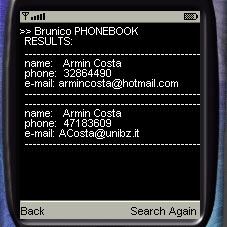MSLS™
Mobile Skiing Location System
portable information
| MSLS software | about | current Version: V1.0 |
|
Dpdl(TM) Dynamic Packet Definition Language |
|
|
|
|
Author: Armin Costa e-mail: armincosta@msls.biz Dpdl is a scripting language which can be used to easily implement a vast variety of Services on the MSLS platform and on other software products based on Dpdl. A full documented API, Dpdl libs itself and other related tools (MapBuilder, Data-Submission Tools, etc. ), will be available soon for Developers. Dpdl has been designed to be applied especially in Mobile Devices and Embedded Systems (PDAs ....), but runs as well on other platforms ( the same Service for example runs in an Internet Browser). * A very useful Feature, is the possibility to bind actual Data with the ".map" file, designed with our Map-builder Tool --> mslsMapBuilder . This makes it possible to implement in very short time a data-service that is being visualized graphically.
Compared to other standards like XML, Dpdl has the following advantages: - easy to use - enhenced binding possibilities with the MSLS-MapBuilder-Format in order to visualize information graphically ( see the Skiing System as example ). - basic build in GUI-Construction (Graphical User Interface) which, controlled by language data-constraints, can provide a very powerful Service-Architecture. - high execution rates ( search for a phone-number in a packet with more than 1200 triple data-entries takes at most 0,8 seconds --> this may depend on how the User controls the search and on how the specific Dpdl-Script has been implented. - high data compression ( 1200 random data-entries --> full name, phone nr., e-mail in ca. 22 kb ) - scalability between different platforms - Encryption, Integrity and Authentication supported - the same Dpdl-script is used for data Encoding, Decoding and for Data Submission - data source specification (typically a database or Vectors) - supports all basic Types ( int, string, byte, Image, class , float, short, Object) - on all platforms, except on Mobile-Phones, due to missing Serialization API, there is also the possibility to define a class-loading and excecution mechanism in the MSLS-Services. ------------------------------------------------------------------------------------------------ 4 Dpdl Examples
Here as example a basic Dpdl-script implementing a Phone-Book on a Mobile Phone --> the PDA version may look slightly different due to the possibility to scale up the search results by just altering the numer in the CHUNK definition. NOTE:
For Dpdl-scripts, you may probably want to use a C++ Syntax
Highlighter
|
www.msls.biz
contact:
info@msls.biz


